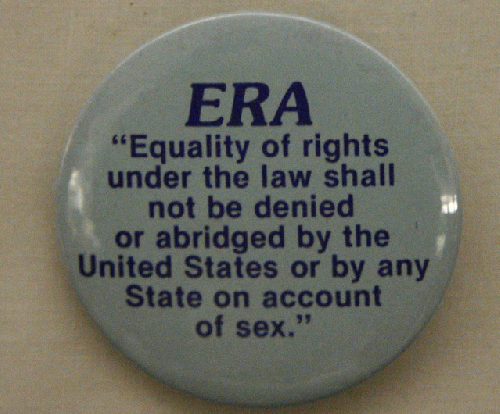There are several ways to amend our Constitution.
The most common way requires two-thirds of the Senate and the House of Representatives to approve an amendment, and three-quarters of state legislatures to subsequently ratify it.
Of the 11,000 amendments proposed in our nation's history, only 27 have ever made it into the Bill of Rights using this method.
On January 15, Virginia became the required 38th state to ratify the Equal Rights Amendment (ERA), legislation originally introduced in the 1920s, then passed the U.S. Senate and was sent to the states for ratification in 1972.
Under the ERA, "Equality of rights under the law shall not be denied or abridged by the United States or by any state on account of sex."
There's just one problem.
Despite the three-quarters of U.S. state legislatures' adoption requirement, the ERA has written into its preamble a provision it be ratified by 1979. That deadline was extended to 1982.
But even this is debatable.
Advocates claim a new deadline is a simple as Congress setting one.
Some propose the deadline is arbitrary since the deadline rests in the preamble instead of the amendment's main text.
The caveat, though, rests with the Trump Justice Department (DOJ), which asserts "the ERA Resolution has expired and is no longer pending before the States."
Last month, three Republican-led states--Alabama, Louisiana, and South Dakota--threw their support behind the DOJ's stance, filing a lawsuit intending to block the archivist of the United States from adding the ERA to the Constitution.
Virginia, Illinois, and Nevada countered with a suit insisting "The duties imposed upon the Archivist are mandatory and purely ministerial," meaning once it passes the minimum number of states, an amendment must be automatically added to the Constitution.
Rep. Carolyn Maloney (D-NY), an ERA sponsor, tweeted:
""Those of us who've worked on the #ERA for so long know this fight isn't easy... we'll overcome any setback to achieve the goal of equality for women in the Constitution."
Does the DOJ and its supporters have legal standing in this case--or is it just another example of a Republican administration blatantly circumventing democracy?






